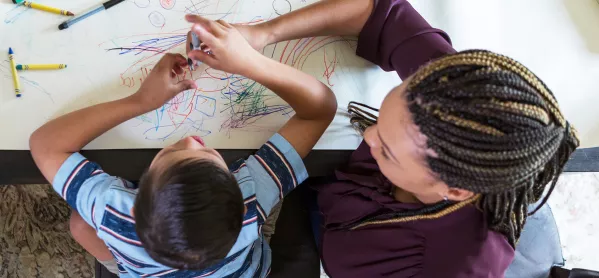The Department for Education has issued fresh calls for companies to train educational psychologists (EP) in a project worth £32 million.
In a contract published this week, the DfE laid out plans to train “three cohorts” of EPs, each with “over 200” trainees, between September 2023 and August 2029.
The EPs will focus on supporting pupils with special educational needs and disabilities, and their families, as well as advising schools and the wider workforce on how to support them.
A spokesperson for the department told Tes that the first two cohorts, of around 400 EPs, would begin their training in 2024 and 2025 respectively, after £21 million of funding was announced earlier this week.
The remaining third cohort, and £11 million of funding, is subject to spending review, the spokesperson confirmed.
This budget would be expected to fund the full three-year tuition fees as well as a first-year bursary payment for trainees and associated course administration costs.
The note added that the department was open to the contract for training being awarded to multiple suppliers and that the government is “particularly interested” in companies that “actively encourage” trainees from regions with current shortages of qualified EPs.
The DfE told Tes it was “currently exploring” which regions fit these criteria.
“Since 2017, the DfE has funded the training of over 1,000 new EPs who have or will be entering the local authority workforce,” the department spokesperson added.
Most schools access educational psychology support through LA’s educational psychology service. Some of this work is delivered on behalf of the LA so is free to schools; other work is traded and delivered through service-level agreements.
Some schools or academy chains employ their own EP or buy sessions from them individually.
David Collingwood, president of the Association of Educational Psychologists, wrote in Tes last year that caseloads were high and though more EP training was available than before, it was “still not enough”.
This, he argued, was partially down to the fact that EPs were “swamped” by statutory assessments for education, health and care plans, which detracted time from being able to focus on early intervention and prevention.
The DfE said the EPs would “work alongside a setting’s pastoral team and other professionals, including school nurses and Mental Health Support Teams, where in place, to provide early targeted support for social, emotional and mental health issues, and help children and young people access other specialist support where necessary.”
The contract comes as the crisis of children and young people’s mental health continues to be highlighted in academic research and government data.
This week, an NHS study found that the proportion of 17- to 19-year-olds with a probable mental health disorder has more than doubled from 10 per cent in 2017 to 26 per cent this year.
The same study found that among 7- to 16-year-olds, the proportion with a probable mental health disorder has risen 6 percentage points from 2017 levels to 18 per cent in 2022.




